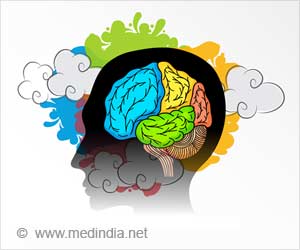Clinicians treating depressed patients often decide on the method of treatment by speculating about the probable neurotransmitter in the brain which needs help, whether it is serotonin, noradrenaline or if it is both. Doctors are often correct in their estimate 60% to 80% of the time, yet the results are not known till a month has elapsed since the commencement of medication.
A recent report may offer a newer method to gauge the type of remedy the patient would best respond to. It was earlier thought that taste is inherited and does not change , but researchers found that ‘taste’ does change to alterations in neurotransmitter levels and to fluctuations in moods, - Taste is infact’plastic’, researchers opined.During their study, twenty volunteers were given either one of two types of well known anti-depressants,- serotonin specific reuptake inhibitors (SSRIs) or noradrenaline reuptake inhibitors (NARIs) or a placebo. The drug is known to enhance the level of the corresponding neurotransmitter in the brain.
Before commencement of the treatments, the study participants undertook taste tests where researchers asked them to taste mixtures in various concentrations, giving them an idea of what to look forward in taste - sour, salt, sweet or bitter. The participants had to point out the exact concentration at which they could recognize the taste. The test was conducted before and after commencement of treatment.
The team found that the subjects who had taken SSRIs were extremely sensitive to sweet and bitter tastes, recognizing them at concentrations below 27 percent and 53 percent respectively, and prior to consuming the drug. Those subjects who took NARIs were able to detect sour and bitter tastes at concentrations below 22 percent and 39 percent respectively, prior to the commencement of treatment. There was no difference in the groups’ response to salty tastes.
Researchers surmise the reason for the unaltered response to salty taste may be due to a different method by which salt taste is detected by taste cells in the tongue. In effect, lowered sensitivity to salt corresponded with an elevated general anxiety levels.
Linda Kennedy, a neurobiologist at Clark University in Worcester, said, "For a long time we thought that taste wasn't plastic. These findings are proof that internal stimuli will change taste sensitivity."
Advertisement
Source-Medindia
SAV








